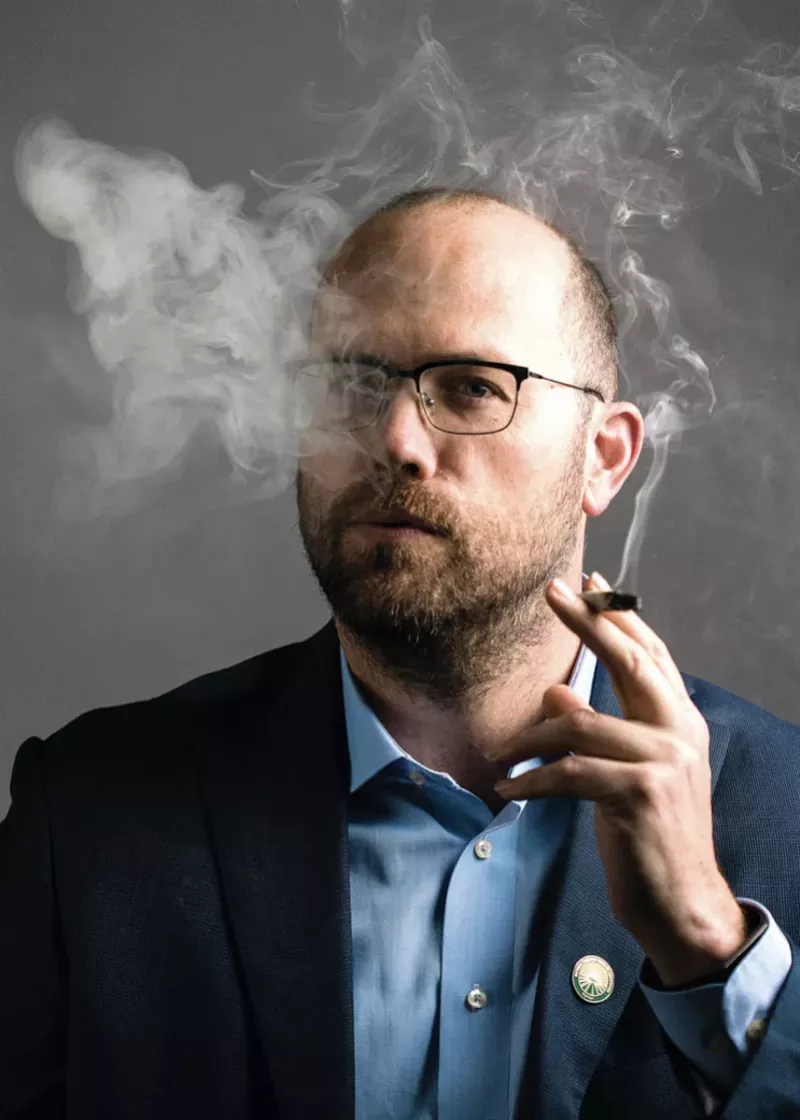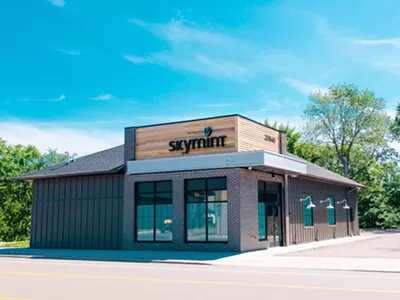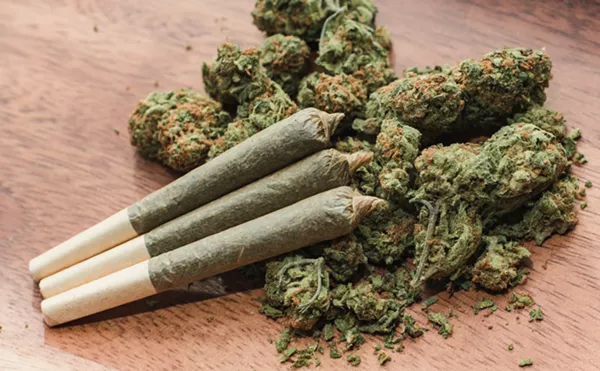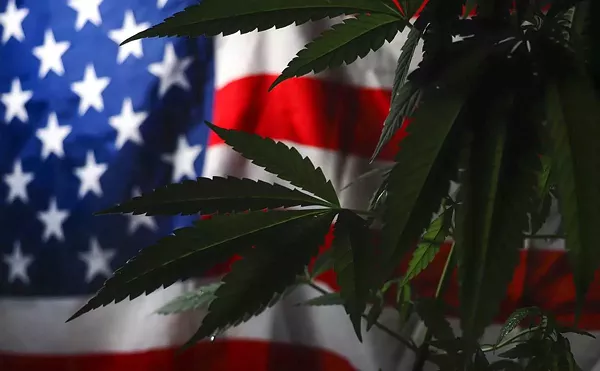The War on Drugs didn’t stop Redemption’s Ryan Basore from working in the cannabis industry — it only made him more determined

Audio By Carbonatix
[
{
"name": "GPT - Leaderboard - Inline - Content",
"component": "35519556",
"insertPoint": "5th",
"startingPoint": "3",
"requiredCountToDisplay": "3",
"maxInsertions": 100,
"adList": [
{
"adPreset": "LeaderboardInline"
}
]
}
]
When Michigan voters legalized medical marijuana in 2008, Ryan Basore was excited for the opportunity to participate in the new industry. He already knew of the healing power of cannabis. Growing up on a farm, he injured himself when he fell off a tractor and was given pain pills but later found out that marijuana alleviated his pain without any of the negative side effects. He became one of the state’s first patients and caregivers, and in 2010, he opened Capital City Caregivers in Lansing, one of the state’s first medical marijuana dispensaries.
“I was a true believer,” he says. “I was always just appalled that people were going to jail for cannabis, and I knew we were being lied to” about the War on Drugs.
Basore worked with local authorities, including police and county prosecutors, to make sure he was doing everything above board. He was relieved when the Obama administration said it wouldn’t prosecute marijuana crimes in states where it was legalized.
But marijuana was and remains illegal at the federal level. In late 2010, Basore’s grow operations were raided by the DEA, state police, and the National Guard. “It was actual helicopters and troops, and guys with smoke bombs,” he says. “All for our 72-plant marijuana grow.”
Basore was devastated. His partners, including his future father-in-law and brother-in-law, were also indicted. “I spent everything I had fighting it,” he says. In 2014, Basore pleaded guilty and was sent to a federal correctional facility in West Virginia.
But he wasn’t going to let prison ruin his life. “I just looked at it from the day I walked in, that this is either going to affect my life in one of two ways. It’s either going to destroy me, or I’m going to use it to make myself better and use this intense situation and come out stronger.”
He devoted himself to working out and lost 70 pounds, and read classic literature. He also taught himself how to build websites, so he’d have a new skill when he got out. He wound up getting released after two-and-a-half years for good behavior.
“Prison taught me how to play long games,” he says. “Real long games.”
And when he got out, he knew he wanted to get right back into the cannabis industry.
“I just watched so many good people just have their rights absolutely trampled,” he says. “Watching that happen and just watching what it did to people, including myself and my family — it just kind of changed me.”
When he got released, Basore was sent to a halfway house in Kalamazoo. “One of the things I learned there is what it takes when you get out. It was so hard to get back on my feet. I was lucky to have great friends and family.”
Since getting released, Basore has devoted himself entirely to cannabis rights and the cannabis industry, starting his own marketing and consulting company for cannabis clients. In 2018, he worked with both MILegalize’s campaign to legalize recreational cannabis use, as well as the campaign for Attorney General Dana Nessel. When voters passed Proposal 1, Basore was elated.
“That was like walking into a new world,” he says.
Basore’s world changed even more in 2020, when one of his consulting clients, Gage Cannabis Co., awarded him a $50,000 grant as part of a social equity program to help those harmed by the War on Drugs. The grant allowed Basore to launch Redemption Cannabis, which sends 10 percent of all proceeds to helping others harmed by the War on Drugs, including job skills training programs, prisoner re-entry initiatives, expungement clinics, and more. The company’s first product is its “Diamonds” concentrate, sold in Gage stores.
Inspired by Basore’s story, a number of stores — including Pharmhouse Wellness in Grand Rapids, The Botanical Co. in Tawas, and Om of Medicine in Ann Arbor — are offering a 10 percent discount to customers convicted of marijuana-related felonies and a 5 percent discount to those convicted of marijuana-related misdemeanors.
“And a lot of these guys and women I’ve known for 10 years or more,” Basore says. “A lot of them are people that helped us legalize, people that have been doing this and been in the trenches with me.”
And that’s just the beginning. Basore is also working to establish a cannabis consumption lounge in Kalkaska — think of it as a coffeehouse for pot, like those in Amsterdam — and a new podcast, The Smoking Rope Podcast, where Basore interviews people in Michigan’s cannabis industry.
“I thought 2020 was going to be my year off,” he says. “But Michigan — there’s no place I would rather be. It’s like my little utopia that we’ve helped build. I had a little part in helping create what I wanted to see.”
There’s still a long way to go. Basore says he will continue to pressure officials like Gov. Gretchen Whitmer to expunge all cannabis-related crimes. He’s also glad to see the Black Lives Matter protests against police brutality raise more awareness about the War on Drugs.
“Selling cannabis legally and criminal justice reform are my two passions,” he says. “And I get to do both.”
You can learn more about Redemption Cannabis at redemptioncanna.com.
It's a new era for marijuana in Michigan. Sign up for our weekly weed newsletter, delivered every Tuesday at 4:20 p.m.







